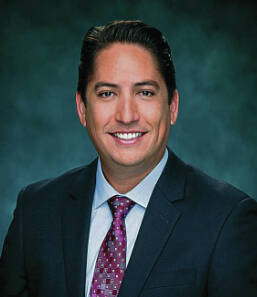GET exemption bills move forward
Two bills proposing an elimination of the general excise tax on providers who accept Medicaid, Medicare and TRICARE patients have progressed in the state House and Senate, offering a chance to slow the physician shortage in Hawaii.
Two bills proposing an elimination of the general excise tax on providers who accept Medicaid, Medicare and TRICARE patients have progressed in the state House and Senate, offering a chance to slow the physician shortage in Hawaii.
Medicare, Medicaid and TRICARE patients cover a variety of eligible low-income adults, children, pregnant women, elderly adults and people with disabilities, along with active service members, retirees and members of the National Guard.
ADVERTISING
“Passage of a GET exemption for medical services is critical for the survival of the private practice of medicine,” said Dr. Scott Grosskreutz, who heads the Hawaii Provider Shortage Crisis Task Force. “If no action is taken, Hawaii will probably become the first state to eliminate the small businesses providing medical care.”
The House Committees on Health and Homelessness and Economic Development have unanimously passed House Bill 662, which would exempt medical services by doctors, advanced practice registered nurses and physician assistants from the general excise tax, with an amendment to include dentists.
The House bill will move to the Committee on Finance, while its companion, Senate Bill 1035, has passed a second reading and will move to the Ways &Means and Commerce and Consumer Protection committees.
“Not passing health care GET exemption legislation would result in Hawaii being the only U.S. state with broad state taxation of these federal programs,” said Grosskreutz. “The number of providers in private medical practices will continue to plummet, trending GET taxation of health revenues toward zero over the next three to five years.”
In Hawaii County, the GET is a 4.712% tax on nearly all business transactions and purchases.
Businesses and other entities are not required to pass the tax along to consumers, but nearly all do.
However, the GET cannot be legally passed on to patients with Medicare, Medicaid or TRICARE.
“Hawaii is only one of two states that taxes health care in America,” said Dr. Cindy Pau, an endocrinologist in Honolulu, in written testimony supporting the House bill. “Hawaii already has one of the lowest Medicare reimbursements in the nation and the GET amplifies this further. The GET directly contributes to why Hawaii has the lowest Medicare acceptance rate in the entire nation despite having one of the highest rates of seniors per capita.”
According to Grassroot Institute, if all for-profit medical providers were exempted from the GET, it would save roughly $200.3 million annually for providers, or about $5,275 per medical service worker in the state. This is equivalent to roughly 6.7% of the average medical service worker’s wage and roughly 5.8% of current GET collections.
“I am confident that the influx of health care providers and staff to the state will generate sufficient economic activity to offset any loss in GET collections,” said Big Island Sen. Dru Kanuha, a Democrat, who co-introduced a similar bill that would have provided GET exemptions for physicians and advanced practice registered nurses acting as primary care providers.
For Hawaii, the GET on Medicare, Medicaid and TRICARE patients is estimated to account for roughly 8% of the nearly $2.6 billion surplus this year, but for medical practices, the GET on practice gross receipts is closer to 11-25% of their overall bottom line.
If private medical practices close, the state could be impacted by other potential revenue losses.
“If this had been done ten years ago, we would have retained more physicians, we would have generated more money in property taxes and sales taxes and payroll taxes,” said Dr. Esther Smith, a family medicine specialist in Kealakekua who serves on the Board of Directors for the Hawaii Academy of Family Physicians. “By keeping this tax in place, Hawaii probably lost money.”
According to the 2022 Hawaii Physician Workforce Assessment, Hawaii County still has a 40% physician shortage and needs 187 providers.
“You can’t expect doctors and clinic directors to be paying to work to provide care,” Smith said. “That is not a sustainable model.”
A similar bill exempting medical services from the GET was circulated through the state Legislature in 2020, and while it passed all Senate committees, it passed all but one House committee before COVID prematurely ended the 2020 legislative session.
“It’s going to be a potent symbol if the GET is removed from Medicare, Medicaid and TRICARE because people have been trying to get this done for so long,” Smith said. “But somehow, various committees just choose to not put it forward.”
If approved, both bills would take effect for taxable years starting Jan. 1, 2024.
Email Grant Phillips at gphillips@hawaiitribune-herald.com




